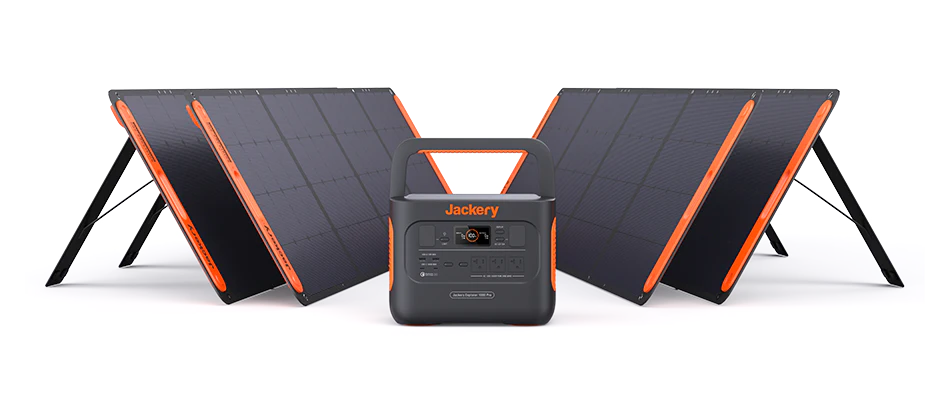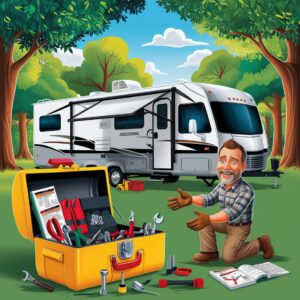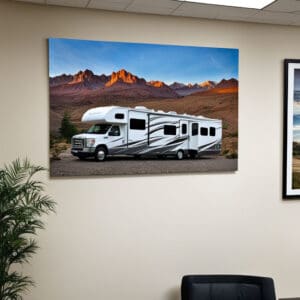If you make a purchase using the links in this article, we may make a commission. And, as an Amazon Associate, I earn from qualifying purchases. See the full disclosure here.
Surviving and Thriving: How to Deal with RV Living Expenses
Hey there, fellow adventurers! It’s Bob and Cyndi from RPlaceTravels, here to chat about a topic that’s close to every RVer’s heart (and wallet): managing RV living expenses. Whether you’re a full-timer or a weekend warrior, keeping costs under control is key to enjoying life on the road. Let’s dive into our top tips and tricks for making the most of your RV budget without sacrificing the fun and freedom of the open road.
1. Track Your Spending Like a Hawk
First things first, you need to know where your money is going. We started by jotting down every expense, from fuel to food to campground fees. Use an app or good old-fashioned pen and paper—whatever works for you. Once you have a clear picture of your spending habits, you can identify areas where you can cut back. It’s like shedding light on those hidden money pits!
2. Fuel: The Biggest Beast
Fuel is one of the largest expenses for RVers. To keep costs down, plan your routes wisely. Avoid zigzagging across the country without a plan. Use apps like GasBuddy to find the cheapest fuel prices along your route. Also, consider driving at a steady pace—no need to be a speed demon. Slower speeds can significantly improve your fuel efficiency. And if you’re stationary for a while, that’s zero gas expense right there.
3. Campground Savvy
Campground fees can add up quickly, but there are ways to save. We love using memberships like Passport America, which offers 50% off at participating campgrounds. Look for national and state parks with reasonable fees, or even better, seek out free camping spots on BLM land or in national forests. We’ve found some of our favorite spots this way—beautiful, serene, and free!
4. Boondocking: The Budget-Friendly Option
Boondocking, or dry camping without hookups, is a fantastic way to save money. It’s just you, your RV, and nature. No campground fees, no noise from neighbors, just peace and savings. Invest in solar panels to keep your power needs met, and learn to conserve water. Boondocking takes a bit of preparation, but it’s totally worth it for the freedom and cost savings.
5. Cooking in Your RV
Eating out can drain your budget faster than you can say “drive-thru.” We’ve made it a habit to cook most of our meals in our RV. Stock up on groceries and plan your meals ahead of time. Not only is it cheaper, but it’s also healthier and can be a fun part of the RV lifestyle. Plus, nothing beats a meal cooked over a campfire under the stars.
6. Managing RV Maintenance
Regular maintenance can prevent costly repairs down the road. Keep an eye on your RV’s vital systems—engine, tires, plumbing, and electrical. We set aside a bit of our budget each month for maintenance and unexpected repairs. It’s a small price to pay for peace of mind and a well-functioning home on wheels. And don’t forget, a handy toolkit can save you from many minor repair costs.
7. Insurance and Memberships
Insurance is a must, but shop around for the best rates. Bundle your policies if possible, and don’t be afraid to negotiate. Memberships in RV clubs like Good Sam can also save you money on insurance, campgrounds, and other services. It’s worth the investment for the long-term savings.
8. Entertainment on a Dime
Living in an RV doesn’t mean you have to give up on entertainment. Many places offer free or low-cost activities. Explore hiking trails, visit local museums on free days, or join community events. We’ve found that some of the best experiences are free—like watching a sunset over a quiet lake or stargazing in the middle of nowhere.
9. Earning on the Road
To offset living expenses, consider ways to earn while you travel. Freelance work, remote jobs, or even part-time gigs at campgrounds can provide a steady income. We’ve picked up odd jobs here and there, and it not only helps with expenses but also connects us with the local community. Who knew that a bit of part-time work could lead to new friends and adventures?
10. Stay Connected
Internet can be a significant expense, especially if you rely on it for work. Look for affordable mobile plans or Wi-Fi solutions that suit your needs. We use a combination of mobile hotspots and campground Wi-Fi. Staying connected is essential, but you don’t have to break the bank to do it.
11. Healthcare on the Road
Healthcare is another critical expense. Look into health insurance plans that are flexible for travelers. Telemedicine services can be a lifesaver, allowing you to consult with doctors without visiting a clinic. Keep a well-stocked first aid kit and be prepared for minor medical issues.
12. Emergency Fund
Lastly, always have an emergency fund. RV living can be unpredictable, and having a financial cushion can turn a potential crisis into just another bump in the road. We recommend setting aside at least three to six months of living expenses.
Managing RV living expenses is all about balance. It’s about enjoying the freedom of the open road while being smart with your money. With these tips, you can keep your costs down and your spirits high. After all, the journey is just as important as the destination.
Happy travels and budget-friendly adventures, Bob and Cyndi




